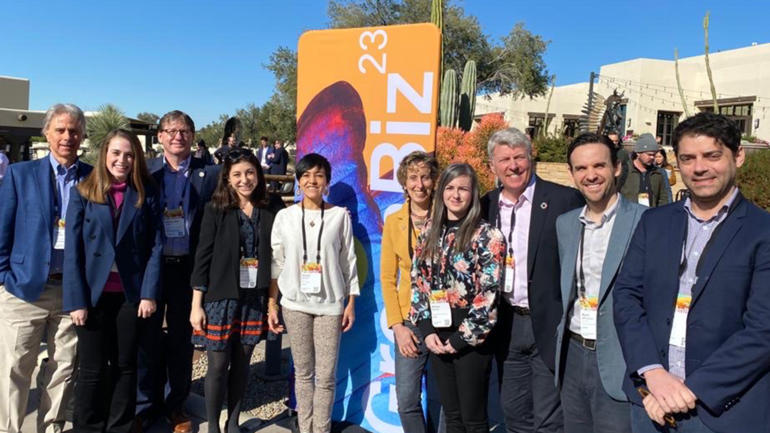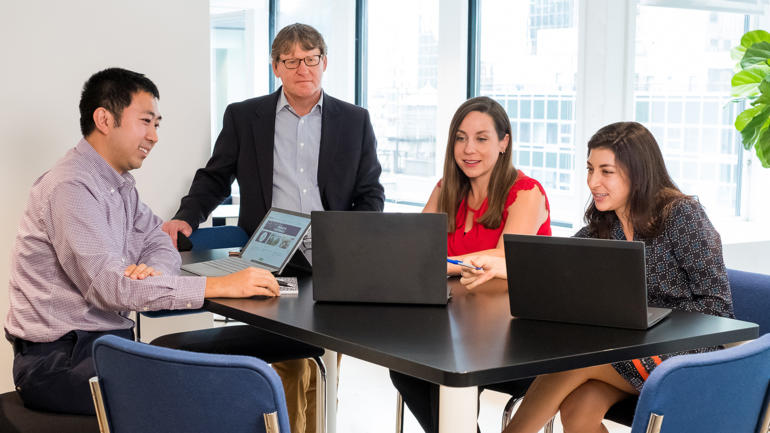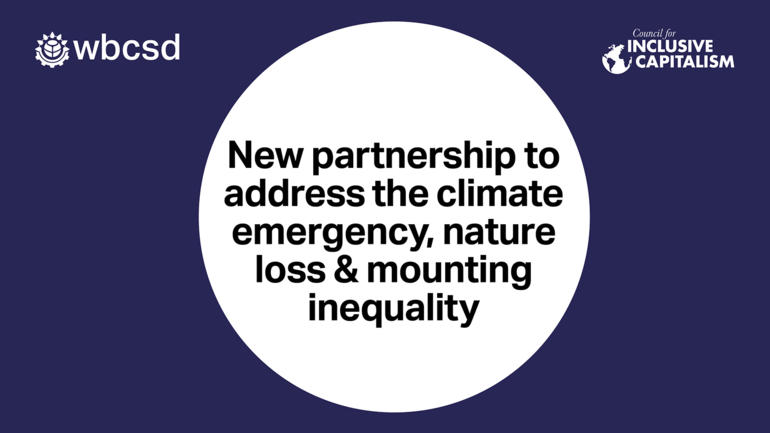This article written by William Sisson, Executive Director WBCSD North America, first appeared in Forbes on 24 April 2020.
The eyes of the world are watching as local, state and national governments scramble to contain — if not curtail — the COVID-19 pandemic, which has affected lives around the globe and disrupted nearly every facet of life as we know it.
At the same time, everyone is watching how organizations are reacting. After all, nonprofit and corporate organizations alike have been rattled by the virus’s backlash, resulting in a soaring unemployment rate due to the temporary closures of office buildings, manufacturing plants and frozen industry sectors such as education, hospitality, travel and entertainment.
No question about it: The ripple effect of this pandemic is simply staggering.
And while people are relying on the collaborative and collective efforts of our heroic healthcare professionals to deal with the sick and infirmed, they also are counting on organizations large and small to help address both the health and economic issues this crisis is creating.
Many companies have stepped up to quickly design and manufacture desperately needed personal protective equipment (PPE) and life-saving ventilators. Hundreds of thousands of other companies globally have arranged for employees to safely work from home, volunteered to provide services free of charge to organizations in need, and performed other activities for the cause.
Once the current crisis subsides, people will remember the organizations that stepped up their efforts to see everyone through the rough spots. But people also will be watching closely in the hopes that organizations continue to help restore national economies and return people to their jobs. It will be important for the recovery to be both inclusive and sustainable.
This is a pivotal moment for organizations large and small to demonstrate their responsibility toward society by sharing their critical know-how and extending their reach, influence and resources for the common good.
Employees — like investors and many others — will be watching to see how organizations react and respond as this crisis continues to unfold.
To effectively, responsibly and continually respond to this crisis, we need bold leadership and determination from CEOs and other executives to help their employees financially during this crisis and beyond, and to encourage adherence to the mandated health policies designed to end this pandemic.
Beginning now, corporations also should start amassing as much local data and information as possible regarding the pandemic so they can effectively refine their crisis response plans for future use.
They can begin by considering a short-term vital supply chain resilience plan. Especially at the onset of the pandemic, consumers flocked to stores and markets and purchased food and household goods much faster than retailers could restock empty shelves. And, with demand outpacing manufacturers’ ability to provide adequate supplies of perishable and nonperishable food, even local food pantries had to shut down.
In this crisis, it is crucial to support and show compassion toward each other. It is equally essential to continue working on sustainable development.
The pandemic has helped reveal numerous vulnerabilities in our governmental and corporate response systems. To minimize the impact of the next crisis — whatever it might be — it is essential for organizations to urgently review and develop even better plans to respond to such crises.
The new response plans should include their employees’ health and safety, building more resilient and responsive supply chains, and other key elements to ensure corporations can accurately and responsibly respond to any crisis that arises.
And, with all companies — especially nonprofits — it is critical that leaders build the right crisis teams. Leaders need to put themselves in the shoes of those they serve to identify their needs — short-term at first, and then longer-term — and execute a strategy to achieve the company’s objectives. They must also be nimble and flexible to address multiple issues that arise during any crisis.
The eyes of the world are truly watching to see who is — or will be — helping to rebuild our economies and restoring our lives in a post-pandemic world, in what likely will become the new normal.








